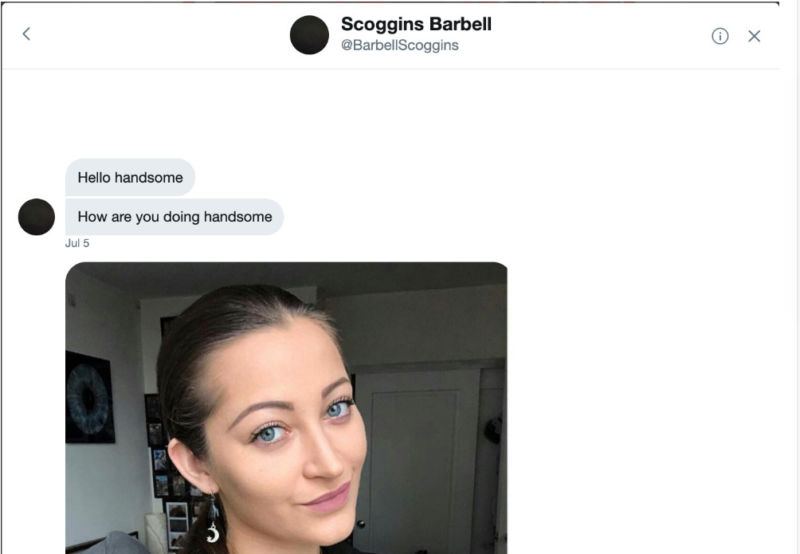Nigerian Scam Memes: From Princes To Modern Scams | Humor & Facts
Are you still receiving those emails from a "Nigerian Prince" promising untold riches? The longevity and audacity of the Nigerian scam, or 419 scam, is a testament to its effectiveness, preying on human desires and vulnerabilities in the digital age.
The digital landscape is awash with scams, but few have achieved the notoriety and cultural resonance of the Nigerian scam. This insidious scheme, often originating from the West African nation, has evolved from simple emails to complex operations targeting individuals across the globe. The premise is almost always the same: a promise of vast wealth in exchange for a small upfront payment or assistance. This often involves a fictional character, like a prince, government official, or wealthy widow, trapped in a complicated situation and needing help to access their fortune. The bait is always appealing: a life-changing sum of money.
The sophistication of these scams varies. Some are poorly written and riddled with grammatical errors, while others are crafted with meticulous detail, employing convincing language and even forged documents. The psychological manipulation is a key component. Scammers build trust through flattery and shared personal information, creating a false sense of intimacy before making their request. This technique, coupled with the promise of significant financial gain, makes the scam remarkably effective, ensnaring even the most cautious individuals.
The internet has become fertile ground for these fraudulent activities. Platforms like Facebook, dating sites, and even professional networking sites are utilized to identify and target potential victims. The scammers often employ social engineering techniques, using fabricated profiles and personas to gain the trust of their targets. One notable example involves a scam master, known as Stephen Masumbo, who used Facebook to initiate contact, flirt, and eventually ask for money under the guise of a romantic relationship, promising to travel from Africa to the UK.
The cultural impact of the Nigerian scam extends far beyond the realm of fraud. It has become a meme, a punchline, and a symbol of online gullibility. The "Nigerian Prince" meme has become a staple in internet culture, resonating with millions of users worldwide. It's a humorous representation of online fraud and the willingness of people to believe seemingly outlandish stories. This has led to a broader awareness of online scams, but also, paradoxically, a desensitization to their dangers.
The origins of the scam can be traced back to the early days of the internet, but its roots predate the digital age, with a precursor in the 19th-century "Spanish Prisoner" scheme. The 419 scam, named after the section of the Nigerian Criminal Code that deals with fraud, has adapted and evolved over time, with scammers constantly refining their tactics to evade detection and maximize their profits. The criminals behind these schemes operate from various locations, including the United States, the United Kingdom, and Nigeria.
The scam's longevity is a testament to its effectiveness and adaptability. Scammers continue to innovate, diversifying their repertoire beyond the "Nigerian Prince" narrative. Other types of scams have emerged, including romance scams, inheritance scams, and investment scams, all with the same goal: to extract money from unsuspecting victims. The scammers often exploit current events and social trends to add credibility to their schemes.
The following table is to demonstrate the bio data of the scammer with the details related to his profession. However, due to the illegal nature of his activity, there's no way to collect real information.
| Attribute | Details (Fictional) |
|---|---|
| Name | Stephen Masumbo (Assumed) |
| Age | 40 (Estimated) |
| Nationality | Nigerian (Likely) |
| Known Aliases | Several, used to create fake profiles |
| Occupation | Scammer (Online Fraudster) |
| Known Activity | Nigerian 419 Scam, Romance Scam |
| Social Media Usage | Active on Facebook (Using fake profiles) |
| Target Profile | Primarily targets women in Western countries, over 35 years of age, using manipulative techniques to build rapport and trust. |
| Modus Operandi | Initiates contact via social media, employs flattery, builds a false sense of intimacy, asks for money for various reasons (travel, medical expenses, etc.), and disappears once the money is received. |
| Estimated Earnings | Unknown; highly variable depending on the scale of operations and success rate. |
Reference: Scamwatch (Australian Government Website)
If you come across the term "Alaye," be wary. This slang is used by scammers to recognize each other and identify potential targets. Being called "Alaye" by a scammer often indicates that you are perceived as a fool and may be blocked, while a scammer using the term may begin discussing scamming.
Victims of these scams are increasingly banding together, sharing images and experiences online to expose the fraudsters and warn others. Many websites and social media accounts, such as those by Social Catfish, frequently share scammer photos and information to help people avoid falling victim to these schemes. If you have been scammed, consider sharing your experience, even if it is difficult; it may help prevent others from being targeted.
It's crucial to recognize a Nigerian scam email. These emails often display certain telltale signs: the sender is unknown, with a suspicious looking email ID, the language used has poor grammar, the message includes a tale of sudden wealth or financial trouble, the urgent calls for action and requests for money. The use of generic greetings, like "Dear Friend," instead of a personal name should also alert the receiver. It can be important to remember that legitimate financial institutions and businesses never request personal information like bank details through unsolicited emails.
The 419 scam, a tactic of advanced fee fraud, is an infamous scheme that originated in Nigeria and has since spread globally. It's a prime example of how this advanced-fee fraud works. The victim is typically contacted by email or letter and promised a substantial sum of money in exchange for their help. Victims are typically asked to pay fees, taxes, or other expenses upfront, with the promise that these costs will be reimbursed once the larger sum is available. But, the requested funds will never be returned.
Even amidst the darkness, there is a strange kind of humor that has emerged around the Nigerian scam. Memes and parody videos have become a way to cope with the proliferation of these scams, and to highlight the absurdity of these attempts at deceit. The "Nigerian Prince" meme has become a staple in internet culture, and it shows how these scams have permeated the collective consciousness. Several websites and platforms allow users to create custom memes, further propagating awareness.
The humor around these scams also takes shape in music and rap. There's even a rap song called "Yahooze" by the Nigerian singer Olu Maintain, which romanticizes the lifestyle of these scammers. This glamorization highlights the cultural impact of these scams and how they've shaped popular perception.
Scammers are always finding new ways to scam people. They can use various platforms and methods to target their victims. Scams that ask for advance fees have even become known internationally as 419 scams after the part of Nigerian law dealing with fraud. These scams use various strategies like phishing emails, fake websites, and social engineering tactics to extract money and personal information from their targets.
The world of Nigerian scams extends beyond just the prince-related messages. Scammers use different methods to try to get money from people. This means it is important for people to learn how to identify these scams and protect themselves online. The rise of these scams underscores the importance of digital literacy and staying informed about the changing tactics used by fraudsters.


![[Image 510798] Nigerian Scams Know Your Meme](https://i.kym-cdn.com/photos/images/facebook/000/510/798/ef7.jpg)